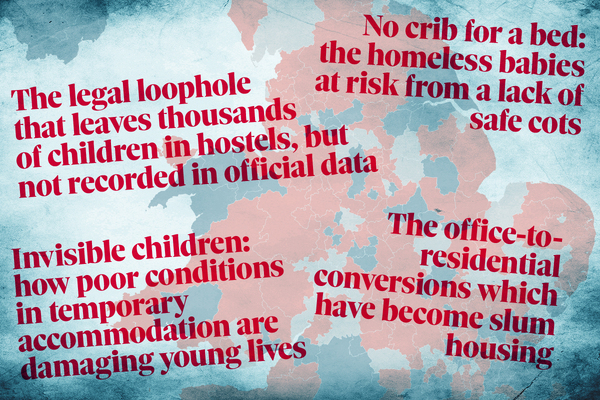‘People like us’: why housing providers struggle to move the dial on board diversity
If not carefully nurtured, inclusive cultures can have the opposite effect of what was intended, writes David Levenson, founder of Coaching Futures
Have you ever been in a situation where you felt totally disempowered?
It’s a feeling you might get at your first board meeting when you are the newbie. Sometimes it occurs during a discussion in which you are unable to contribute. It can feel extremely uncomfortable.
The boardroom is sometimes an intimidating place. Imagine being at a restaurant table with seven colleagues who are golfers and you are the one who has never picked up a club. When the conversation turns to golf, it passes you by and suddenly you start to feel that you are being excluded.
There is nothing you can do except perhaps get up and leave, but you don’t want to appear rude. Nor do you want to be reminded about it back in the office.
This happens often in board meetings when people are excluded, often, but not always, unintentionally. If you are not part of the culture, on the team or with the programme, you are the one who gets left out.
Exclusion in any team is a problem, but what does it have to do with succession planning for boards and selection of new board members? Simply this: boards routinely recruit people who are what is often characterised as a good cultural fit or, putting it another way, ‘people like us’.
Company directors have the same legal rights and protections as any other employee, which means that the law protects them from discrimination in the workplace. But it rarely happens that a board candidate would report a company for discriminatory recruitment practice. No one wants to be labelled as ‘awkward’ or a ‘troublemaker’ when pursuing a career in the boardroom.
“The board may deny itself the opportunity to expand its range of thinking by introducing more cognitive diversity”
How boards appoint and dismiss or retire directors is largely a matter of self regulation. But beyond this, succession planning and selection of new directors is the life blood of the board and of the organisation for which the board is its guardian.
Talking about fostering an “inclusive culture” on a board is one way of saying that we want people to feel they belong here. However, here’s the rub: what if I look round the room, listen to the chat (about golf, or whatever it might be) and I don’t feel I belong. Inclusive cultures can, if not carefully nurtured, have the opposite effect of what was intended; it ends with people with good qualifications and credentials for the job being excluded.
As a result, the option to draw upon the widest possible pool of suitable candidates might be missed. More importantly, the board may deny itself the opportunity to expand its range of thinking by introducing more cognitive diversity on the board.
Why is diversity so important in the boardroom and how can a board set a strategy to achieve it?
Boards are by nature diverse, adaptive systems, and directors must always have in mind which combination of skills, competencies and experiences are needed to perform their roles on the board.
The chair has an important role to ensure that there are plans in place for any situation which may call for changes of personnel. These include unexpected departures, financial losses or reputational damage in the short term and new business opportunities, mergers, acquisitions or disposals over a longer time frame.
The succession plan needs to be tied in closely with the business’s strategy.
“In an era of constant transformation… boards must retain the capability to adapt as circumstances change”
Boards may use skills and knowledge assessments to identify where there are gaps. Measuring a board’s effectiveness is about more than what the board does, it is also about who the board is and what it stands for. This goes to the heart of the matter of why diversity matters on boards, if we want to avoid a golf club dinner or other exclusionary scenarios occurring at board meetings.
As in so many aspects of the board’s business and conduct, the chair has a pivotal role in ensuring that the board adopts and maintains a strategy and policies for succession planning and selection of new board members. In an era of constant transformation, when systemic shocks of the kind witnessed during the 2020-21 coronavirus pandemic are a feature of every 10-year cycle, boards must retain the capability to adapt as circumstances change.
In a governance system that is by and large upheld by principles and codes of conduct rather than laws and regulatory rules, it is for directors themselves to look in their personal governance front and rear-view mirrors, listen to wise counsel around them and recognise when it is their time to move aside for the sake of the organisation whose best interests they have guarded in preceding years.
There are other factors that are important when considering board succession and selection strategies, including the importance of transparency in the selection process, the dangers of ‘over-boarding’ (where individuals have too many board appointments, resulting lack of focus and likelihood of conflicts of interest), and the importance and value of the induction process for board members.












